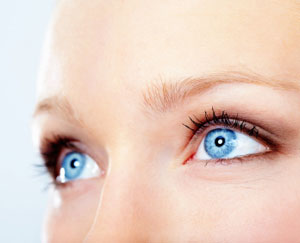
HealthNotes
Your source for all nutrition related information
Start A Search, Or Explore HealthNotes Through The Featured Articles
Search Healthnotes
Eye Care Buying Guide

If you or someone in your family has sensitive eyes or suffers from allergies that affect the eyes, try some of these tips and products to find relief, especially in the height of allergy season. Treat your eyes with care to protect them from serious infections and other conditions that can affect comfort and vision. To that end, keep the following tips in mind:
- Only use products meant for eyes in your eyes.
- Some products are meant for around the eye but not in the eye: be sure to read instructions and use products as directed.
- Remember that some irritations can be infections, so seek medical care if a condition doesn’t improve after a few hours or days, depending on your discomfort.
- Don’t rub itchy or tearing eyes: you may have something inside your lid that could scratch your cornea.
- Do not share eye products with others.
- Eyelid Cleansing Wipes
What they are: Eyelid cleansing wipes are small, disposable cloth cleansing pads with soothing cleansers .
Why to buy: Eyelid cleansing wipes can be useful tools for combating seasonal allergies and pollen. They gently and easily remove dirt, allergens, and other irritants from your around eyelids and eyelashes. If you have an eye infection , consider using eyelid cleansing wipes for cleaning and soothing.
Things to consider: Eye infections should first be treated by a doctor. If you have sensitive skin, read ingredients carefully . Direct contact with your eyes may cause irritation.
- Eye Cleansers, Creams, & Gels
What they are: Eye cleansers, creams, and gels contain skin treatments infused with beneficial natural ingredients and antioxidants, such as vitamins A and C, Aloe vera, green tea, and cucumber.
Why to buy: Eye cleansers, creams, and gels help ease tired eyes, reduce puffiness, and nourish the skin around your eyes.
Things to consider: While most eye cleansers are natural and gentle, avoid direct contact with your eyes . Look for products that are hypoallergenic and dermatologist-tested if you have sensitive skin.
- Eye Drops
What they are: Medicated eye drops and saline eye drops are used to treat dry, itchy, red eyes caused by allergies, medications, or the common cold. Most eye drops come in a liquid that imitates the feel of real tears. For persistent dry eyes, try drops made of gels, which claim to provide better, longer lasting relief. If you wear contact lenses, select specially formulated eye drops that are gentler and won’t interfere with your lenses.
Why to buy: Eye drops offer immediate relief from dry eyes—artificial tears lubricate and soothe, saline eye drops cleanse and moisturize. To soothe itchy, watery eyes and reduce redness, try (with your doctor’s recommendation) eye drops with antihistamines or other medications.
Things to consider: Over-the-counter eye drops are meant for short-term relief. Some contain preservatives and other chemicals that may irritate the eyes if used for long periods. Eye drops designed to reduce redness may also cause dryness, so be careful not to overuse them. Remember, eye drops are meant for use by one person as droppers are easily contaminated. Avoid touching the dropper—especially with fingers or the surface of your eye. Check expiration dates regularly and replace when needed.
- Eye Gel Pads
What they are: Disposable premoistened gel pads contain nourishing, soothing ingredients for your eyes and skin. For added cooling comfort, store your gel pads in the refrigerator.
Why to buy: Gel pads offer a quick, convenient at-home spa treatment to sooth and enhance the delicate skin around your eyes. If you need to reduce puffiness and dark circles, look for gel pads with chamomile, cucumber, and Aloe vera—all naturally soothing and hydrating ingredients. Some manufacturers claim refreshing and rejuvenating results from products containing vitamin C, citrus, or Ginkgo biloba.
Things to consider: If you have sensitive skin, only purchase products that are hypoallergenic and dermatologist-tested. It is recommended that gel pads be used several times a week for best results.
Connect With Clark's
2020 © All Rights Reserved. Clark's Nutrition is a registered trademark of Clarks Nutritional Centers, Inc.
Terms of Use










